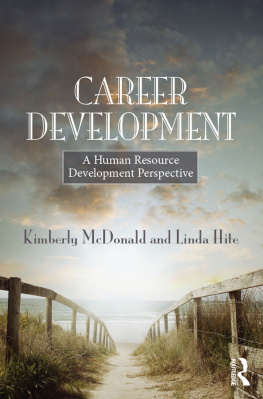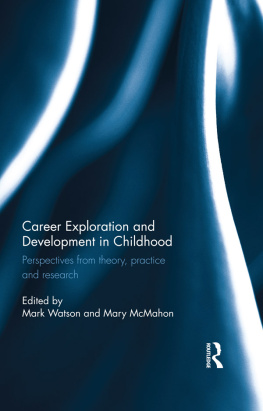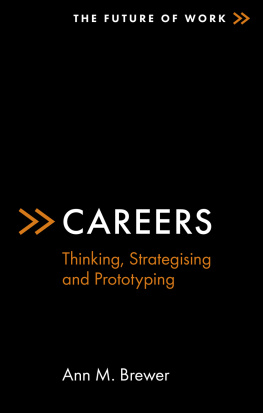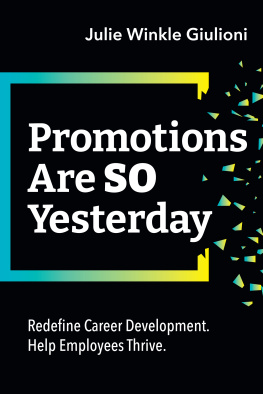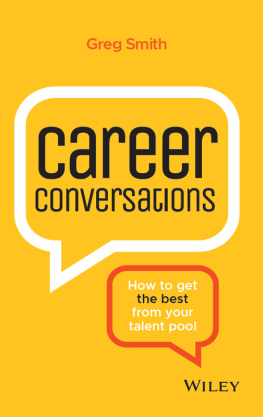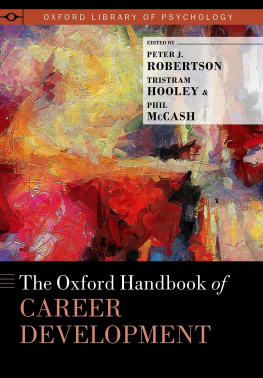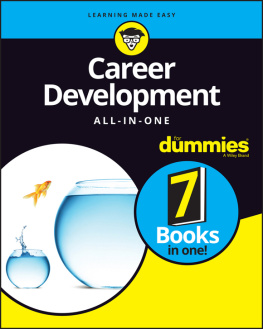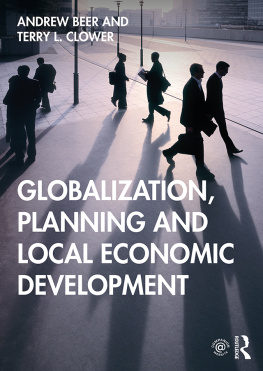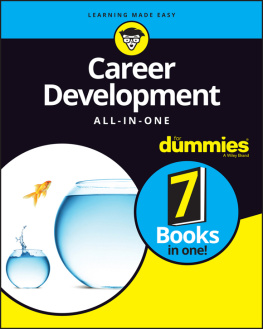
Career Development
Career Development: A Human Resource Development Perspective offers a strategic framework that demonstrates the role of career development within the human resource function. It goes beyond conventional interventions and includes key topics such as diversity, worklife balance, and ethics.
Historically, the career development literature has been viewed either from the perspective of the individual (how to build a career) or from an economic perspective (how an organization benefits from developing employees). In this book, McDonald and Hite bring together the strengths of both traditions, offering an integrated framework for career development. The theoretical foundation expands on the counseling literature by incorporating the literature from human resource development and related fields. The application section reflects on the wide range of ages and working options that characterize the current and future workplace. The final section of the book addresses career development issues such as managing a diverse, global workforce; ethics; and worklife balance.
This book will help prepare human resource development students, scholars, and practitioners to develop and maintain successful career development programs, and to foster more innovative research that advances the discourse.
Kimberly McDonald is Professor of Organizational Leadership and Supervision at Indiana-Purdue University Fort Wayne, USA. Her research focuses on career development, ethical issues in human resource development, and diversity education. She recently completed her term as editor-in-chief of the journal Advances in Developing Human Resources.
Linda Hite is Professor of Organizational Leadership and Supervision at Indiana-Purdue University Fort Wayne, USA. Her research focuses on workforce diversity, career development, and diversity education. She is book and media review editor for New Horizons in Adult Education and Human Resource Development.
Career Development
A Human Resource Development Perspective
Kimberly McDonald and Linda Hite

First published 2016
by Routledge
711 Third Avenue, New York, NY 10017
and by Routledge
2 Park Square, Milton Park, Abingdon, Oxon OX14 4RN
Routledge is an imprint of the Taylor & Francis Group, an informa business
2016 Taylor & Francis
The right of Kimberly McDonald and Linda Hite to be identified as the authors of this work has been asserted by them in accordance with sections 77 and 78 of the Copyright, Designs and Patents Act 1988.
All rights reserved. No part of this book may be reprinted or reproduced or utilised in any form or by any electronic, mechanical, or other means, now known or hereafter invented, including photocopying and recording, or in any information storage or retrieval system, without permission in writing from the publishers.
Trademark notice: Product or corporate names may be trademarks or registered trademarks, and are used only for identification and explanation without intent to infringe.
Library of Congress Cataloging in Publication Data
McDonald, Kimberly.
Career development : a human resource development perspective / Kimberly McDonald & Linda Hite. 1 Edition.
pages cm
1. Career development. 2. Personnel management. I. Hite, Linda. II. Title.
HF5549.5.C35M383 2015
658.3124dc23
2015017694
ISBN: 978-1-138-78612-7 (hbk)
ISBN: 978-1-138-78613-4 (pbk)
ISBN: 978-1-315-76740-6 (ebk)
Typeset in Times New Roman
by Sunrise Setting Ltd, Paignton, UK
To Dave and Rich, our spouses and soulmates. Thanks for your continued patience, support, and love.
Contents
Think of yourself not as the architect of your career but as the sculptor. Expect to have to do a lot of hard hammering and chiseling and scraping and polishing.
B.C. Forbes, founder of Forbes magazine
Your work is to discover your work and then with all your heart to give yourself to it.
Attributed to the Buddha
What Does It Mean to Have a Career?
This book is about careers and how they develop, but, to understand what it means to have a career, we should begin at a more foundational level, specifically, work and the role it plays in our lives.
The meaningfulness of work in life has global and enduring appeal, as seen in the two quotes that open this chapter. Work and careers are such an integral part of life that the discourse devoted to those interrelated topics spans centuries and extends from social media and popular press to scholarly articles and books. For example, over two decades ago, an article appeared in Fortune Magazine titled Why do we work? (Dumaine & Sample, 1994). Then, as now, the most obvious answer seemed to be to make money. Yet, the point of the article was that work encompasses more than just financial security. While some work primarily to make ends meet, given the choice, then as now, people tend to seek out occupations that enhance a sense of self. As Warren Bennis, leadership scholar and consultant, observed, Work really defines who you are. So much of a persons self-esteem is measured by success at work (Dumaine & Sample, 1994).
More recently, Hall and Las Heras (2012) reinforced the idea that, in some cultures, work and career are closely tied to individual identity and help define ones sense of life purpose. It is a means to fulfill ones potential. Similarly, Duffy and Dik (2013) have noted the prevalence of the idea of a calling in scholarly literature on careers. While definitions vary, three components seem to make up a sense of calling: an external summons, feeling drawn to do a particular type of work; meaning/purpose, connecting work to a life purpose; and prosocial motivation, contributing to the well-being of others (p. 429). While more research is needed regarding this concept, links are evident between seeing ones career as a calling and positive outcomes such as career commitment and job satisfaction (Duffy & Dik, 2013). Not surprisingly then, the loss of a job often means more than just reduction of income. It may bring into question ones sense of worth and purpose. In short, careers matter to us and may have a profound impact on how we see ourselves and how happy we are in our lives.
The idea of meaning and work is also revealed in how employees determine their career goals. Hall and Las Heras (2012) observed that careers can be seen from two different perspectives: the subjective, derived from an individual sense of meaningfulness regarding a career; and the objective, focusing on what others often identify as key indicators of success (e.g., promotions, pay). While traditional career research often honed in on the objective hallmarks, the subjective aspect has gained in prominence as the career environment has changed. Our current view of careers is much more expansive and open to individual interpretation and initiative. As a result, the study of careers and career development has become not only more varied, but also more important to human resource development (HRD). Before we go further, lets define key terms for our continued discussion.
Defining Careers and Career Development
Moore, Gunz, & Hall (2007) provided a helpful context by observing that, while people have worked for millennia, the word career in reference to a path of employment was not used prior to the nineteenth century, and it did not come into common usage until the twentieth century. Herr (2001) was more specific, noting that the term
Next page
